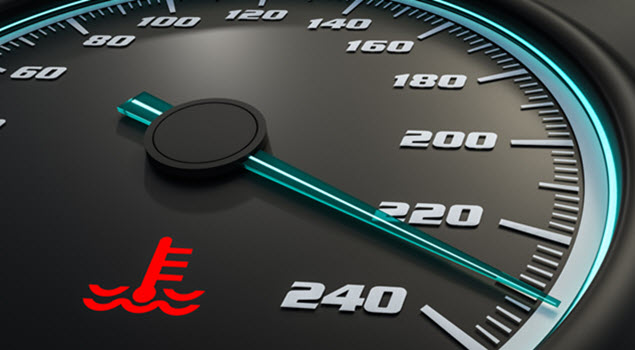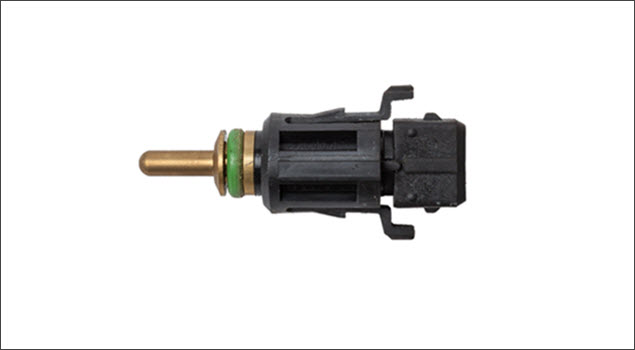The Volkswagen coolant temperature sensor is located near the thermostat housing. The thermostat housing contains the thermostat, which regulates the engine’s coolant flow. The Volkswagen coolant temperature sensor monitors the engine’s coolant temperature and sends a signal to the engine control module (ECM). The ECM uses this signal to control the engine’s fuel injection and ignition timing.
If the coolant sensor fails, the ECM will not be able to properly control the engine’s fuel injection and ignition timing, which can lead to engine damage.
The Volkswagen coolant temperature sensor is made up of two main components: the sensing element and the connector. These must work as designed to keep your VW in proper working condition. Your coolant temperature sensor is a vital component of the engine management system, and without it, the ECM will not be able to properly control the engine’s fuel injection and ignition timing.
Do you recognize any of these signs of a coolant temperature failure?
Coolant temperature sensor failures can cause a number of problems for your car. Here are four signs that your sensor may be failing:
- The engine is running hot: If the coolant temperature sensor is not working properly, the engine may run hotter than normal. This can cause serious damage to the engine over time.
- The engine is stalling: If the sensor is not sending the correct signal to the engine computer, the engine may stall or hesitate when you try to start it.
- The car is overheating: This is obviously a very serious problem that should be addressed immediately. If the coolant temperature sensor is not working properly, it can cause the car to overheat, leading to engine damage or even a fire.
- The check engine light is on: This is one of the most common signs of a problem with the coolant temperature sensor. If the light is on, it means that the computer has detected an issue with the sensor and is trying to alert you.
Know When It’s Time to Replace the Sensor
There are several reasons why a coolant temperature sensor may fail, including:
- A build-up of deposits can form on the sensor, preventing it from accurately reading the coolant temperature. This sensor is located in the engine block, and over time, it can become clogged with debris. When this happens, the sensor can’t accurately measure the temperature of the coolant, and as a result, the engine may overheat. In some cases, this can cause serious damage to the engine. To avoid this type of problem, it’s important to have the sensor cleaned periodically. Volkswagen recommends having the sensor cleaned every 20,000
- A break in the wiring that leads to the sensor can cause an electrical problem. If the sensor itself becomes damaged or disconnected, it will no longer be able to accurately measure the coolant temperature. As a result, the engine may overheat, leading to serious damage. In most cases, a break in the wiring is responsible for coolant temperature sensor failures. This can occur due to physical damage, corrosion, or simply age-related wear and tear.
- The plastic housing around the sensor can crack, allowing coolant to leak into the sensing element. This will result in an inaccurate coolant temperature reading, which can cause the engine to run too lean and overheat.
Volkswagen models have a history of problems with the coolant temperature sensor. In fact, Volkswagen issued a recall in 2008 for this very issue. VW owners should be aware of this problem and have their vehicles checked regularly to ensure that the sensor is working properly. So, if you suspect that your Volkswagen’s coolant temperature sensor has failed, it’s important to have it checked out by a qualified mechanic as soon as possible.
Woodinville Sports Cars
To fix a Volkswagen coolant temperature sensor failure, our mechanics will first inspect the sensor to see if it is defective. If it is, they will replace it with a new sensor. They will also check the wiring and connectors to make sure they are not damaged. Finally, they will test-drive the vehicle to ensure that the new sensor is working properly.
We proudly serve clients in the nearby areas of Bothell, Kenmore, Kirkland, Mill Creek, Monroe, Redmond, Snohomish, and Woodinville, WA. Please stop in or call us today for Volkswagen repair or routine maintenance.





Recent Comments